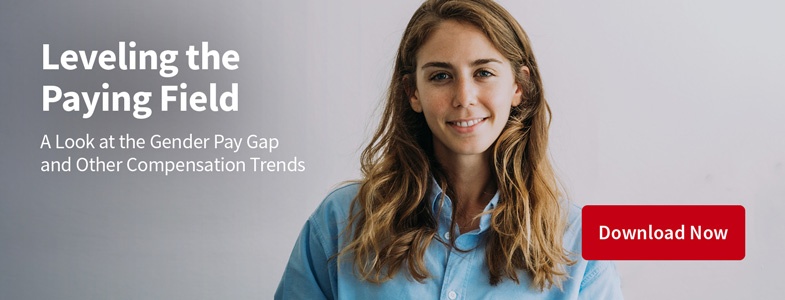beqom Study Reveals Employee Concerns Around Pay Fairness and Transparency

Over the past four years, impacts of the pandemic, rising inflation, and new pay transparency legislation have left American and British workers wondering if they’re being paid fairly, and led UK workers to lead the charge for greater salary transparency, amid a growing willingness to publicly disclose their salaries to boost pay equity and level the playing field.
These findings are according to beqom’s Leveling the Paying Field Report, which uncovers how pay gaps and pay transparency are impacting today’s workforce. Read on for more findings from the report about how workers are perceiving pay equity and transparency.
Pay equity is increasingly on workers' minds
More than half of US employees (51%) think their workplace has a problem with a gender pay gap–up 121% since 2019–and more than a third (35%) think the gender pay gap has actually increased in the last two years. Furthermore, nearly two in five (39%) employees do not think they’re paid fairly.
In the UK, more than half (54.5%) do not think enough has been done to address the UK’s gender pay gap. Nearly two-thirds (62%) of UK employees would be willing to publicly share their salary to benefit others’ knowledge of compensation in their industry, despite a historical taboo on the sharing of salaries.
Speculations around unfair pay are now sparking new discussions among colleagues since employees say inflation (58% US, 63% UK) and the pandemic (56% US, 55% UK) have made them more likely to discuss pay with their colleagues.
Employers are not seen as doing enough to close the gap
Although employees see issues with pay gaps, beqom found that roughly half of employees (51% US, 47% UK) think their employer or manager takes closing the gender pay gap seriously, while one in four (25% US, 27% UK) disagree. This may be why most (68% US, 65% UK) employees would be more willing to work at a company that discloses gender pay gaps (both up 5% from 2019), as well as ethnic pay gaps (63% both), salary ranges for roles internally (66% US, 68% UK) and salary ranges for roles externally (68% both).
“To bridge pay gaps in the workplace, employers must proactively build pay equity and increase transparency within their organization,” said Tanya Jansen, co-founder of beqom. “When employers make a conscious effort to boost pay equity and provide more transparency around pay decisions with their staff and candidates, they help to build a level of trust that contributes to a feeling and reality of fair pay. Amid today’s shifting work landscape and volatile job market, this meaningful progress toward remediating pay gaps and bias is critical to maintaining higher employee retention.”
Workers speak their minds about pay
Additional findings from the report show that:
Employees believe national pay transparency would make a difference in closing pay gaps
Nearly three-quarters (73% US, 69% UK) of employees think widespread or national pay transparency laws would help close pay gaps. (That’s up 8% since 2019 in the UK.)
Two in five (39%) U.S. employees report there are pay transparency laws in their state or city, but another 38% don’t know if these laws exist in their location.
Half (50%) of UK employees reported they have been made aware of the UK’s pay gap reporting laws/practices by their place of work, with more men (58%) than women (43%) made aware.
A unique labor market has resulted in new hires that often make more than current employees – and it’s not going unnoticed
- Nearly three in five employees are aware of how much someone else in their current position makes at their company (60% US, 56% UK), how much a new hire in their position makes at their company (60% US, 57% UK), and how much someone else makes in their position at a different company (57% US, 54% UK).
- For those who know how much a new hire in their position makes, a sizable portion (36% US, 26% UK) reported the new hire makes more than they do.
Although those who asked for a raise in 2022 often received one, men were more likely to reap the benefits
- More than half (58%) of US employees, and less than half (45%) of UK employees, asked their employer or manager for a raise in the last year. Of those who asked for a raise last year, many received one that was below their expectations (34% US, 42% UK).
- In the US, more men (51%) than women (42%) who asked for a raise received one that met or exceeded expectations. In the UK, the percentage was even for both genders at 36%.
- Women (26% US, 29% UK) were more likely than men (18% US, 21% UK) to not ask for a raise because they didn’t feel comfortable due to the lack of open conversation about pay at their company.
Millennials see an increased pay gap in their companies and it could be enough to give them a wandering eye
- More than a third (42% US, 35% UK) of Millennials think the gender pay gap has increased in the past two years.
- Three quarters (77% US, 75% UK) of Millennials think widespread or national pay transparency laws would help to close pay gaps.
- Millennials (72% US, 73% UK) are more willing to work at a company that discloses its gender pay gap figures yearly, showing their desire for transparency.
- A large majority of Millennials (73% US, 70% UK) are also the most likely to be willing to publicly share their salary to benefit others’ knowledge of compensation in the industry, compared to Gen Zers (56% US, 59% UK), Gen Xers (58% both) and Baby Boomers (59% US, 51% UK).
To discover the complete findings of beqom’s Leveling the Paying Field Report, download the full report.
